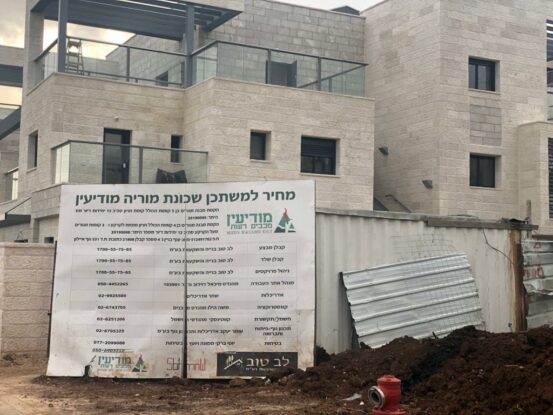Minister of Construction and Housing Yaakov Litzman’s new plan for affordable housing in Israel, “Housing at Reduced Prices” (Mechir Mufchat) is finally underway, following approval last week by Minister of Finance Israel Katz of the Israel Land Council’s decision to promote the plan, which had been accepted back in September.
According to the affordable housing plan, the Israel Land Authority (ILA), the body that manages all state land, will publish tenders for purchasing land by developers, and guarantee discounted prices for buyers. The reason behind the three-month delay was a dispute between finance ministry and housing ministry officials over the amounts the land would be discounted. Until Katz gave his approval, state lands could not be sold to developers as part of the new plan.
Only first-time buyers who are Israeli citizens, including new immigrants who made Aliyah and live in Israel, are eligible to purchase apartments through this affordable housing program. Non-residents are not eligible. This new program is expected to replace the Buyer’s Price Program (Mechir Lemishtaken), which was implemented by former Finance Minister Moshe Kahlon in 2015. While Mechir Lemishtaken was applied throughout all of Israel, according to Litzman’s new plan, in areas where there is great demand and the price per square meter of land is high, the state will sell plots using the ‘Hamarbeh B’mechir’ method, which was in use before the Mechir Lemishtaken method was implemented.
In other areas, subsidized housing tenders will be held according to one of two methods. According to the first method, the state will determine the final price of apartments, which will reflect a discount as compared with market prices, and construction companies will accept bids for the purchase of land, with the highest bidder winning the tender. According to the second method, which is mainly intended to be implemented in Israel’s most outlying regions, the state will determine ahead of time both the price of land and the final price of the apartments, and construction companies will compete with each other over land development payments.
In recent weeks, the Israel Land Authority has already begun publishing other tenders for affordable housing on its website, even though it was not able to open these tenders for actual bids. Now that Katz has given his approval to the plan, a large number of tenders are expected to be opened all at once for the construction of over 20,000 subsidized housing units in accordance with the plan’s guidelines.
So far, 43 tenders that are in accordance with the plan’s guidelines have been published, the largest among them being for 2,000 apartments in Ashkelon, 1,600 apartments in Yehud, 900 apartments in Netanya, 800 apartments in Rishon Lezion and 700 apartments in Ashdod. A few hundred apartments in the neighborhoods of Pisgat Zeev and Givat Hamatos, which are located in the eastern part of Jerusalem, were also approved in accordance with the plan.
In recent days, in a surprising move, the ILA published a new tender for 400 affordable housing units in Israel in the Haredi city of Bnei Barak, which is located in one of the most expensive areas in metropolitan Tel Aviv. This came despite the statement that the plan would not be implemented in Israel’s most expensive and central areas. The Israeli media was quick to attribute this deviation in policy to the identity of the housing minister, who is a member of the Haredi political party United Torah Judaism. The housing ministry, however, rejected these allegations outright.







